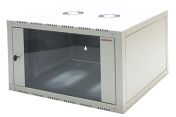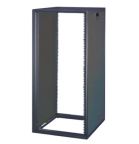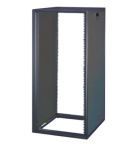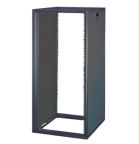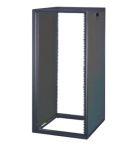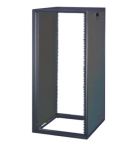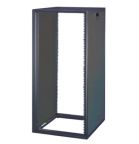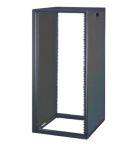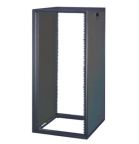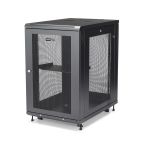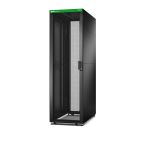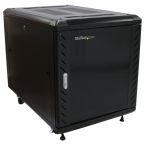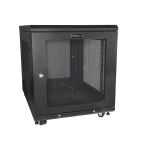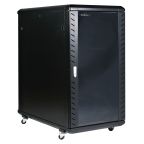Server Cabinets
Server cabinets, sometimes called data cabinets or server rack cabinets, are a type of storage for rack mount servers. The majority can house 19” server racks (industry standard sizing). Server cabinets and computer cabinets are offered in a range of heights to suit the number of racks you want to mount and can be open frame or enclosed.
RS has a wide selection of server cabinets available for you to choose from, we also offer a selection of handy server rack shelves to pair with your cabinet. All brought to you by industry leading brands such as StarTech, APC and our trusted own brand RS PRO. We offer speedy next day delivery and have free delivery options available.
One of the key benefits to mounting your server rack into a cabinet is security. Safeguarding your network and data is essential and using a computer cabinet helps to protect the hardware on which your network is built.
Server Cabinet Features
Rack cabinets often have a number of integrated features including power management and distribution, cable management and network connectivity. This means that when you need to expand your network it is simply a case of mounting a new server into the existing cabinet.
**Security - **Whilst open frame server racks offer superior cooling with greater air flow and circulation, enclosed cabinets are much more secure and provide protection to the racks inside. They often have lockable and removable doors, some of which feature a glass front.
Mounting Types - The most common mounting types of network cabinets are wall mount, floor standing or desktop. Wall mount data cabinets and desktop data cabinets are ideal for smaller network installations. Freestanding data cabinets tend to house a much higher number of network installations that require more space.
Soundproofing - Soundproof server cabinets can be utilised within office space without the need for a separate room, as the noise generated by servers will be reduced. This means you can utilise office space in any way you want without negatively disturbing your workforce.
Data Cabinet Sizes
Rack units are commonly abbreviated to just U and are the measure of server size. Each unit is 1.75 inches or 44.5 mm tall. Individual server racks are typically 1U, 2U, 3U or 4U high. Some units are supplied as half racks, where they are the same height but half the width of a standard unit.
When choosing the cabinet for your application you should consider the number of server racks you want to mount.
- Small data cabinets cater for servers from 1U up to 10U
- Medium data cabinets accommodate 11U servers to 25U servers
- Large date cabinets accommodate 26U servers and above
